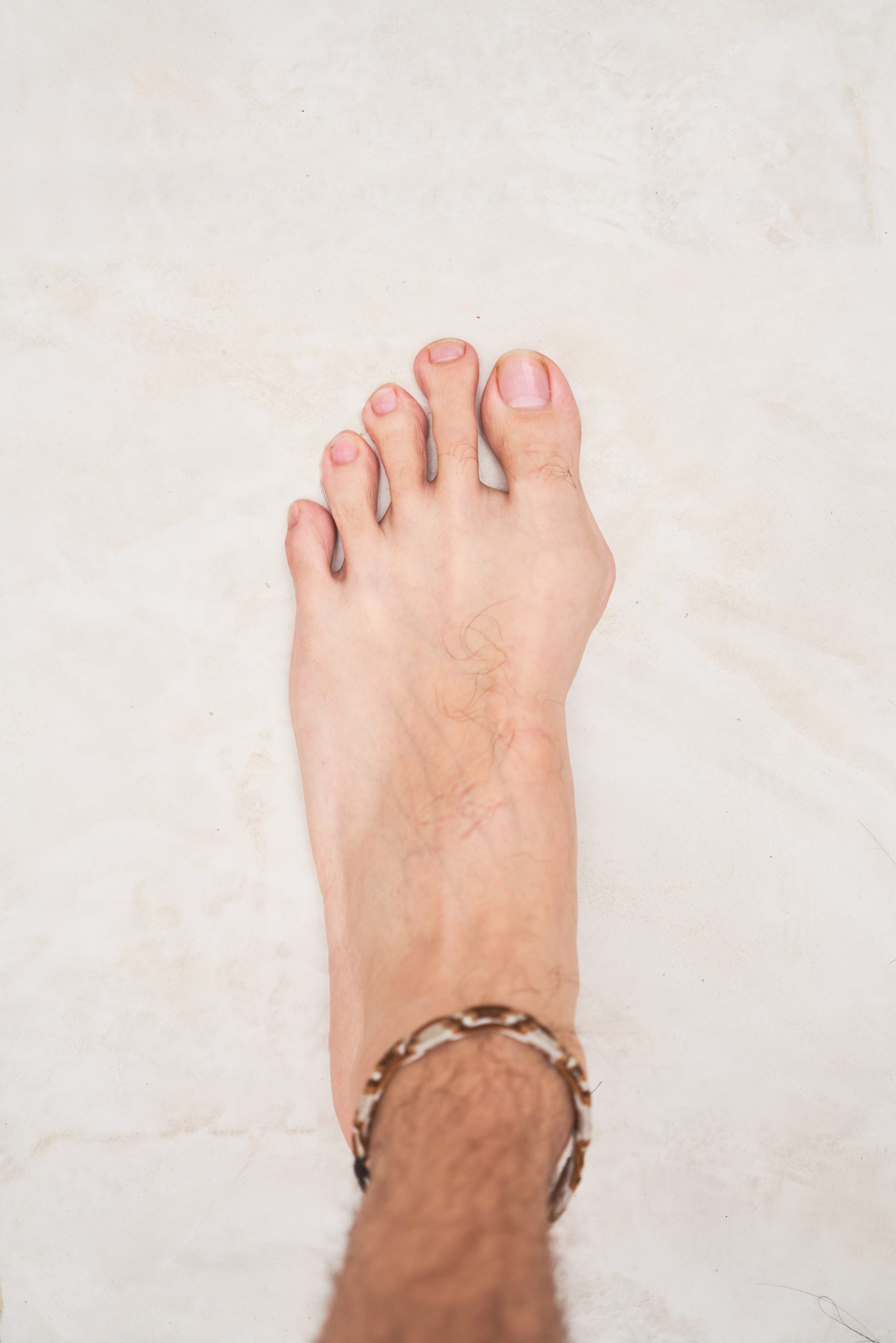Bunions
What are Bunions?
Bunions, also known as hallux valgus, are a common foot condition characterized by the enlargement of the joint at the base of the big toe. It appears as a bony bump on the side of the foot, causing the big toe to deviate towards the other toes. Bunion development often leads to pain, discomfort, and difficulty finding properly fitting footwear. As Bunion Specialists, we specialize in diagnosing and treating this condition effectively.
Causes
Bunions can be caused by various factors, including:
- Genetics: Inherited foot structure can increase the likelihood of developing bunions. Certain foot shapes and abnormalities can contribute to the misalignment of the joint.
- Footwear choices: Wearing tight, narrow-toed shoes or high heels can force the toes into unnatural positions, leading to the development of bunions over time.
- Foot stress and overuse: Engaging in activities or occupations that place excessive stress on the feet, such as ballet or certain sports, can increase the risk of bunion formation.
- Medical conditions: Certain medical conditions, such as rheumatoid arthritis, can cause inflammation and joint deformities, including bunions.
Symptoms
Recognizing the symptoms of bunions is crucial for accurate diagnosis and effective treatment. Common symptoms include:
- A visible bony bump on the side of the foot at the base of the big toe is a key characteristic of a bunion.
- The big toe may gradually deviate towards the other toes, causing crowding and misalignment.
- Pain and discomfort, especially when wearing tight shoes or engaging in activities that place pressure on the affected area.
- Restricted range of motion in the big toe joint, making it difficult to bend or flex the toe.

Call Our Office
(912) 999-6885
Office Location
9100 White Bluff Road, Suite 102
Savannah, GA 31406
Book An Appointment
Click Here To Book An Appointment
As Bunion Specialists, we understand the impact that this condition can have on your foot health and overall well-being. If you experience any symptoms or suspect a bunion, we encourage you to consult with our team of experts for a personalized assessment and a comprehensive treatment plan.
Let us help you alleviate pain, improve foot function, and support your journey to optimal foot and ankle health.
Treatments
Effective management of bunions involves a combination of non-surgical and surgical treatments, depending on the severity and symptoms. Some common treatment options include:
Potential at-home remedies:
Footwear modifications
Wearing comfortable, wide-toed shoes with adequate arch support can help alleviate symptoms and prevent further progression of the bunion.
Orthotic devices
Custom-made shoe inserts, called orthotics, can provide additional support, reduce pain, and improve foot alignment.
Bunion Specialist’s interventions:
Pain management
Nonsteroidal anti-inflammatory drugs (NSAIDs) or corticosteroid injections may be prescribed to manage pain and reduce inflammation in the affected area.
Physical therapy
Specific exercises and stretching techniques can improve joint mobility, strengthen foot muscles, and help maintain proper foot alignment.
Surgical intervention
In severe cases where conservative measures do not provide relief, bunion surgery may be recommended. Bunion Specialists can perform procedures such as bunionectomy to realign the joint, remove excess bone, and restore proper foot structure. Surgical intervention aims to alleviate pain, improve foot function, and enhance the appearance of the foot.
